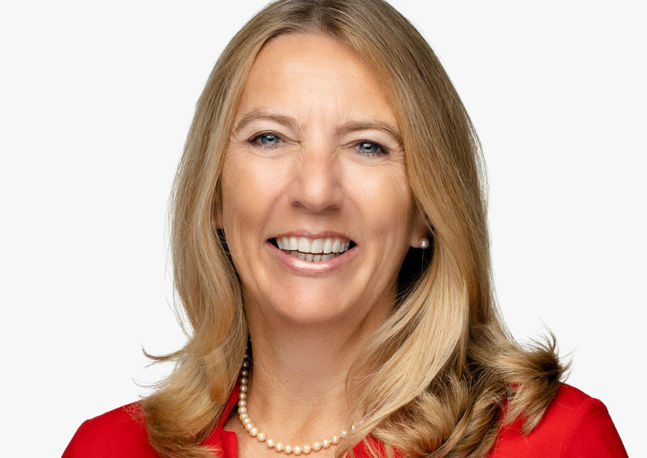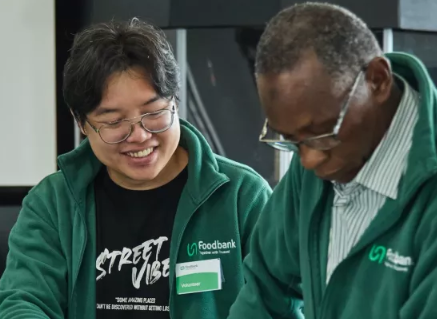Nikita Smith is the Senior Partnerships Officer at mentoring and youth development charity ReachOut. Here, she talks about her experience volunteering with the organisation she works for, and how it’s given her a new perspective on the work she does.
_________________________________________________________________
When I was at school, I would have really benefited from having a mentor. Working with a role-model who believed in me, who wasn’t a parent or a teacher, and who I could talk to and learn from would have been invaluable.
It’s what motivated me, as an adult, to volunteer as a mentor. It also ended up leading me to my current role working with our corporate partners at ReachOut.
ReachOut is a mentoring and education charity rooted in local communities. We link young people from under-resourced areas with volunteer mentors, helping them grow in character and confidence through developing their social and emotional skills.
Whilst working in my previous role – also in partnerships at an NHS Trust – I’d decided that volunteering with young people was something I wanted to do in my spare time. It was through searching for various volunteering opportunities that I came across ReachOut and found that they also happened to have a job vacancy. I ended up applying for, and getting the job, but that didn’t stop me from wanting to volunteer as a mentor. If anything, it made me want to do it more. I realised that, for me, I couldn’t talk about the power of mentoring without having experienced it myself – it would be like recommending a film without having watched it.
Volunteering at the organisation I work for has definitely had a positive effect on my ability to do my job. One of our primary offers to corporate partners, for example, is the opportunity for their staff to volunteer as mentors.
Being a mentor myself has meant that I can speak from a position of authenticity with my corporate contacts. I’ve found that they trust what I’ve got to say about the opportunity because I can tell them about my experiences and insights into the challenges that the young people we work with are facing. When they ask about impact , I can tell them about the transformation I’ve seen in my mentee . When they ask whether staff members will be able to fit volunteering around their busy schedules, I can say: “well I have!”. Through being able to give a mentor’s perspective on the work we do, I often feel a shift in the conversation that helps build the trust you need to secure a positive partnership.
Working for ReachOut has also impacted my experience as a mentor. I try as much as possible to keep the two things separate. The young people on our project know I work for ReachOut, but when I’m there, I’m Nikita the mentor, not Nikita the fundraiser.
I spend every day talking about the power of mentoring, and how important it is for young people to have mentors who are consistent and can commit to working with them. It’s something that definitely makes me feel aware that I need to practice what I preach, giving me the motivation to be present, even if it’s been a long day or if I’m feeling nervous, which I did at first. I also talk a lot, day to day, about the big picture, so being able to switch focus to one young person, as well as the group they’re part of, is a nice change of pace.
I really can’t recommend mentoring highly enough. During the most recent school year, I worked each week with a year 10 student at a high-school in London. It was incredible to see her come out of her shell a little more week by week. When we started, she was shy and unsure of herself but ended up as someone who was always putting herself forward and eager to get involved. In one of the final sessions, when a mentee had to lead an activity, seeing her step up and nominate herself was huge.
One specific highlight of mine from the last year was a time when Nikita the mentor and Nikita the employee actually did collide! Another way that our corporate partners support our young people is through workplace experience visits – inviting them to their offices for the morning to meet their teams and find out about different career paths.
We took the group I mentored with, including my mentee, to the office of Howden Insurance in central London. They loved getting to see the office – especially the roof terrace where you could practically reach out and touch the Gherkin – as well as meeting all the different staff members. “It made me feel motivated and have a positive mindset about my future” one mentee told me. I always have a great time on these visits, but spending the morning with the young people I’d got to know, and see how excited they were, made it feel extra special. It was definitely both my professional and my mentoring highlight of the year.
So, if you’re reading this and thinking about volunteering with the charity you work for, I’d say go for it! Obviously, it goes without saying that you can be an authentic voice for your cause no matter what you do. But, on a personal level, I’ve loved getting the opportunity to practice what I preach and working directly with the young people I ask our partners to support.
Latest News
-
Breast cancer charity founder steps down after 30 years
-
Mencap takes over closed charity’s shops amid retail expansion
-
Charities to benefit from £3.1m from insurer
-
Dr Alex Rhys: Why quiet leaders belong in charity leadership
-
Suneet Sharma: Embedding governance as a strategic enabler
-
More than one in four charity workers fear losing their job this year
Charity Times video Q&A: In conversation with Hilda Hayo, CEO of Dementia UK
Charity Times editor, Lauren Weymouth, is joined by Dementia UK CEO, Hilda Hayo to discuss why the charity receives such high workplace satisfaction results, what a positive working culture looks like and the importance of lived experience among staff. The pair talk about challenges facing the charity, the impact felt by the pandemic and how it's striving to overcome obstacles and continue to be a highly impactful organisation for anybody affected by dementia.
Charity Times Awards 2023
Mitigating risk and reducing claims

The cost-of-living crisis is impacting charities in a number of ways, including the risks they take. Endsleigh Insurance’s* senior risk management consultant Scott Crichton joins Charity Times to discuss the ramifications of prioritising certain types of risk over others, the financial implications risk can have if not managed properly, and tips for charities to help manage those risks.
* Coming soon… Howden, the new name for Endsleigh.
* Coming soon… Howden, the new name for Endsleigh.
Better Society

© 2021 Perspective Publishing Privacy & Cookies











Recent Stories